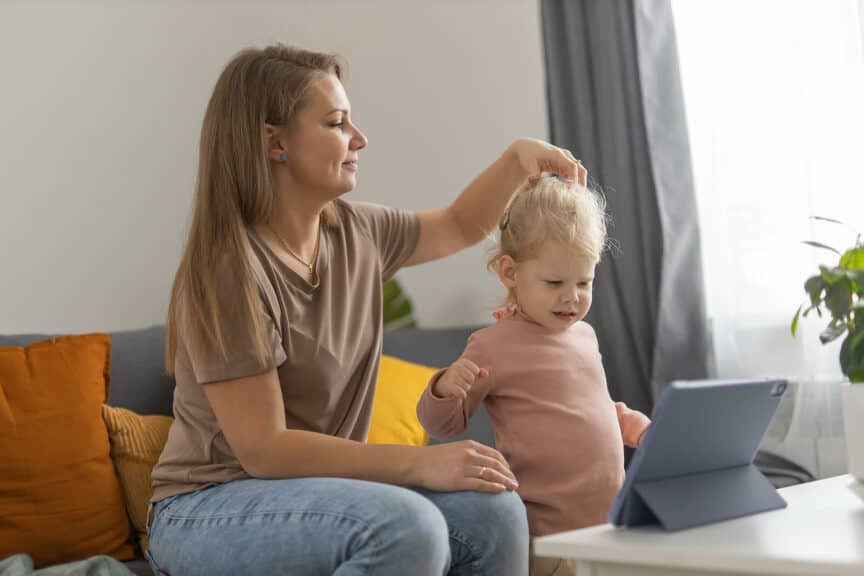- Navigating Concerts When Wearing Hearing Aids - April 28, 2024
- How to Care for Infants With Hearing Loss - April 15, 2024
- Hearing Aid Tips for Runners - April 5, 2024
As parents, you want to provide the best possible care for your new baby, especially if they have been diagnosed with hearing loss. While this may seem daunting at first, rest assured that with the right knowledge and support, you can create a nurturing environment that helps your infant thrive. Here are some essential tips for caring for infants with hearing loss.
Create a Supportive Environment
The first step in caring for an infant with hearing loss is to create a supportive and nurturing environment at home. This includes minimizing background noise whenever possible, speaking clearly and directly to your baby, and ensuring that their hearing aids or cochlear implants are properly fitted and functioning.
Engage in Face-to-Face Communication
Babies with hearing loss rely heavily on visual cues to understand and interpret the world around them. Make sure to engage in plenty of face-to-face communication with your infant, maintaining eye contact and using facial expressions and gestures to enhance their understanding. This not only helps strengthen your bond with your baby but also facilitates their language development.
Encourage Early Intervention
Early intervention is key when it comes to supporting infants with hearing loss. Speak to your pediatrician about scheduling regular hearing screenings for your baby and explore early intervention programs that can provide specialized support and resources. The sooner you address your baby’s hearing loss, the better the outcomes are likely to be in terms of language development and overall communication skills.
Foster Language Development
Language development is a critical aspect of infant development, particularly for those with hearing loss. Make a conscious effort to expose your baby to language-rich environments by reading books, singing songs, and narrating daily activities. Consider enrolling in parent-infant communication classes or seeking guidance from a speech-language pathologist who specializes in working with infants with hearing loss.
Establish Routines and Rituals
Babies thrive on routines and predictability, which can be especially beneficial for those with hearing loss. Establish consistent daily routines and rituals to help your baby feel secure and grounded. This might include regular feeding and sleeping schedules, as well as special bonding activities such as bath time or bedtime stories.
Educate Family and Caregivers
It’s essential to educate family members and caregivers about your baby’s hearing loss and how they can best support their development. Encourage them to speak clearly and directly to your baby, use visual cues during communication, and familiarize themselves with the operation and maintenance of hearing aids or cochlear implants.
Stay Positive and Patient
Caring for an infant with hearing loss can be challenging at times, but it’s important to stay positive and patient throughout the process. Celebrate each milestone and progress, no matter how small, and remember that every baby develops at their own pace. Surround yourself with a supportive network of family, friends, and professionals who can offer guidance and encouragement along the way.
In conclusion, caring for an infant with hearing loss requires patience, dedication, and a nurturing approach. By creating a supportive environment, engaging in face-to-face communication, encouraging early intervention, fostering language development, establishing routines and rituals, educating family and caregivers, and staying positive and patient, you can help your baby thrive and reach their full potential.

